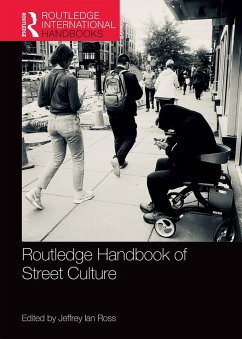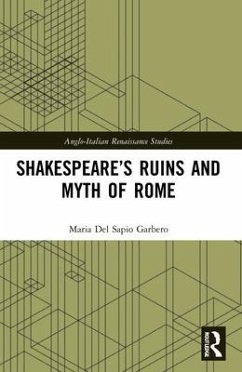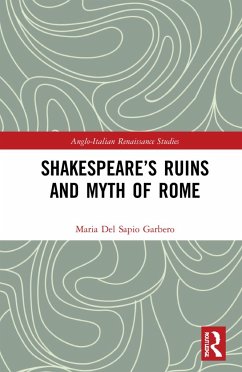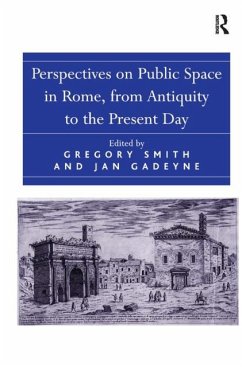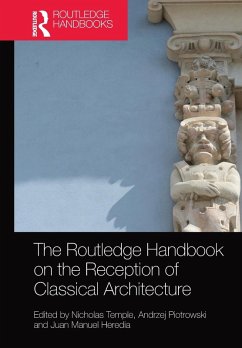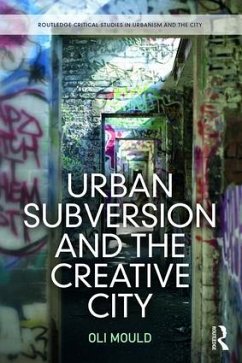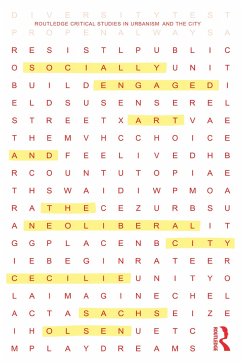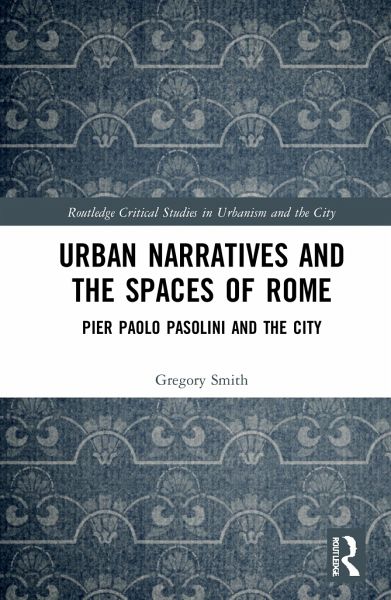
Urban Narratives and the Spaces of Rome
Pier Paolo Pasolini and the City
Versandkostenfrei!
Versandfertig in 6-10 Tagen
45,99 €
inkl. MwSt.
Weitere Ausgaben:

PAYBACK Punkte
23 °P sammeln!
This book foregrounds the works of Pier Paolo Pasolini to study the Roman periphery and examine the relevance of Pasolini's vision in the construction of subaltern identity and experience. It analyses the contemporary Italian society to understand the problem of social exclusion of marginal communities.Narrative studies are at the core of the contemporary social science research. This book uses narrative analysis to unpack the deeper meaning of Rome's stigmatized periphery through an interplay of Italian cinema, literature, and social and political climates. It encourages a positive interpreta...
This book foregrounds the works of Pier Paolo Pasolini to study the Roman periphery and examine the relevance of Pasolini's vision in the construction of subaltern identity and experience. It analyses the contemporary Italian society to understand the problem of social exclusion of marginal communities.
Narrative studies are at the core of the contemporary social science research. This book uses narrative analysis to unpack the deeper meaning of Rome's stigmatized periphery through an interplay of Italian cinema, literature, and social and political climates. It encourages a positive interpretation of the Roman periphery through its characterization as a homogeneous area of marginality as emphasized in Pasolini's writings and films on Rome. This re-evaluation left a lasting impact on the modern periphery and the narratives of ordinary citizens as evident in contemporary street art and popular musical production. Pasolini's revolutionary vision allows us to appreciate the human and aesthetic character of urban life in regions beyond the main urban areas. The respect for subaltern urban communities encouraged by this book can be extended from Rome to other parts of the world. This book presents an interconnection of social theory, geography, poetry, literature, film and the visual arts to study the experience of life in underprivileged urban areas.
Written in an accessible style, the book offers a reimagining of the Roman periphery which will appeal to readers in France, Spain, Italy, Australia, areas which have significant interest in Italian studies and the works of Pasolini.
Narrative studies are at the core of the contemporary social science research. This book uses narrative analysis to unpack the deeper meaning of Rome's stigmatized periphery through an interplay of Italian cinema, literature, and social and political climates. It encourages a positive interpretation of the Roman periphery through its characterization as a homogeneous area of marginality as emphasized in Pasolini's writings and films on Rome. This re-evaluation left a lasting impact on the modern periphery and the narratives of ordinary citizens as evident in contemporary street art and popular musical production. Pasolini's revolutionary vision allows us to appreciate the human and aesthetic character of urban life in regions beyond the main urban areas. The respect for subaltern urban communities encouraged by this book can be extended from Rome to other parts of the world. This book presents an interconnection of social theory, geography, poetry, literature, film and the visual arts to study the experience of life in underprivileged urban areas.
Written in an accessible style, the book offers a reimagining of the Roman periphery which will appeal to readers in France, Spain, Italy, Australia, areas which have significant interest in Italian studies and the works of Pasolini.







